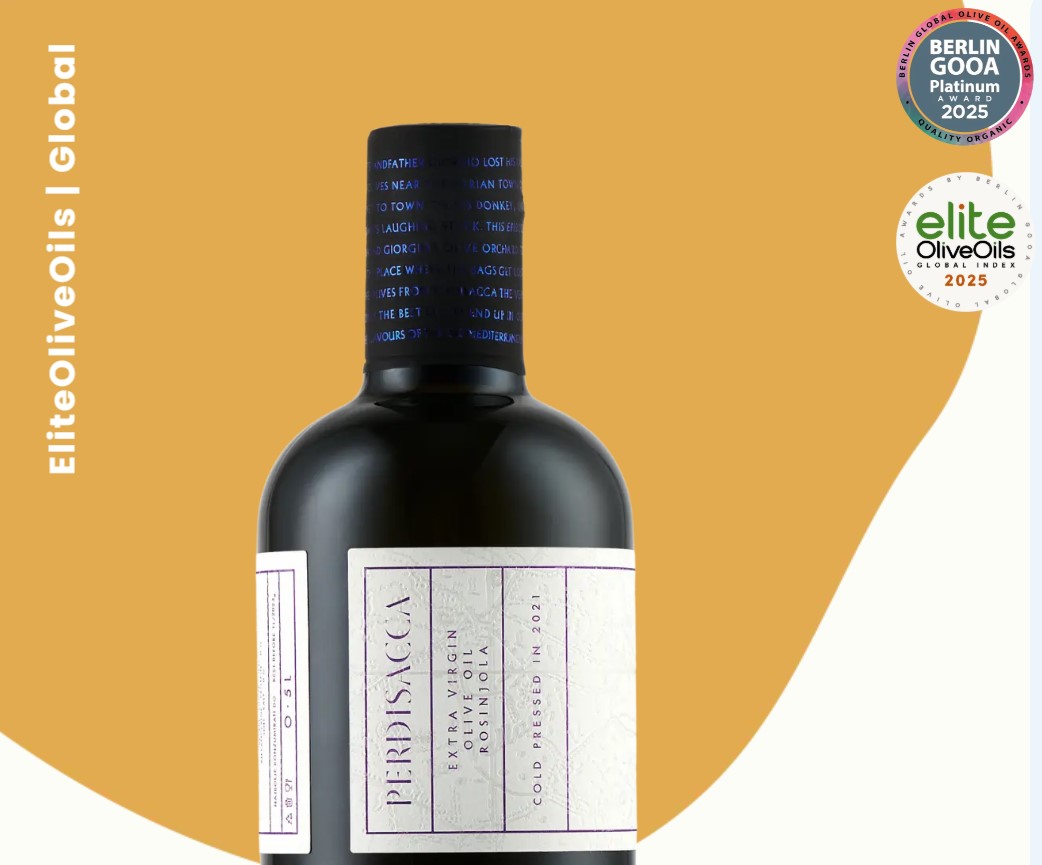03.08.2025
The Ultimate Guide to Choosing & Storing Extra Virgin Olive Oil in 2025
-thumb.png&w=3840&q=75)
Upgrading your cooking starts with
the golden elixir of the Mediterranean: extra virgin olive oil (EVOO). To
truly get the health, flavour, and value benefits, here’s how
to select, store, and use it like a pro—with some compelling facts you probably
didn't know!
What to Look For when buying real extra virgin olive oil
1. Read the label carefully. Only buy bottles clearly marked “extra virgin.” Pay special attention to the harvest date: if there is no harvest year on the label avoid it. Olive oil is best within a year of harvest for peak flavour and health benefit, even though storage in tanks under inert gas like nitrogen or argon extends the life span of the oil, so if you know how the producer is keeping its oil that is a plus.
2. Know the
origin: Top oils proudly specify the country in which olives were
grown and harvested. Variety is also a good sign of quality - look for
names of varieties like Buža, Rossignola, Leccino, Žižolera and others if
you are buying your extra virgin in Croatia.
3. Look for information about production method. Real extra virgin has to be cold pressed, meaning olives are milled at temperatures below 28°C and only by mechanical means, meaning there are no chemical involved in the process. That processing ensures that the oil that comes out of the mill has all the health benefits and great aromas that an extra virgin should have.
4. Packaging is critical! Only buy oils in dark glass bottles, tins or ceramic bottles. Light and heat rapidly degrade EVOO's healthy polyphenols and other compounds. If you do buy olive oil in transparent glass do so directly from the producer and make sure to use it quickly.
5. Good extra virgin olive oil
doesn't come cheap! Taking care of the trees all year long, picking olives
and milling is very labour intensive. Some varieties, like our Buža, carry
significantly less oil than the average and in some years it takes 20
kilos of olives to make just 1 Liter of olive oil (but the oil is sublime
;))
6. If you can taste the oil then
you are in a great position to pick right. Good fresh extra virgin olive
oil should taste fresh and grassy, with a bitter and peppery finish. The
peppery and bitter parts show that olives were picked at the right time,
were healthy when milled and the oil was kept in clean tanks away from
light, heat and oxygen, so the polyphenols that are the cause of the
spiciness have been preserved. They are the ones bringing health benefits
to your diet.
Storing EVOO - Keep it fresh!
1. Light, heat
and oxygen destroy flavour and health benefits. Store your bottle in a cool,
dark cupboard or pantry—never near the stove, not in the windowsill,
and not in the fridge (the oil will harden and be hard to use or condensation
could dilute and
ruin the oil).
2. Seal tightly because oxygen accelerates
spoilage. Always close the bottle securely, and if you buy in large cans,
decant only what you’ll use in a few weeks into a smaller bottle, sealing
the rest.
3. Buy only as much
as you’ll use in six to twelve months for the freshest taste. Fresh oil
trumps “vintage” every time.
Bonus facts for enthusiasts
- Award-winning olive oils are reviewed annually, just like fine wines! International competitions track the best of the best, so watch for “award winner” labels if you want to try world-class varieties. This year our Rossignola monovarietal won the Platinum award in the International olive oil competition in Berlin, Berlin GOOA and it was the only organic extra virgin olive oil from Croatia to win this award.
- Colour is not a sign of quality. Some of the best artisanal extra virgin oils are cloudy and emerald green, others golden and clear. This is also why professional tastings are done in coloured glasses, mostly blue or red ones.

Treat extra virgin olive oil as both an essential ingredient and a culinary treasure. Buy thoughtfully, taste adventurously, and store it well—you’ll elevate both your cooking and your health!
